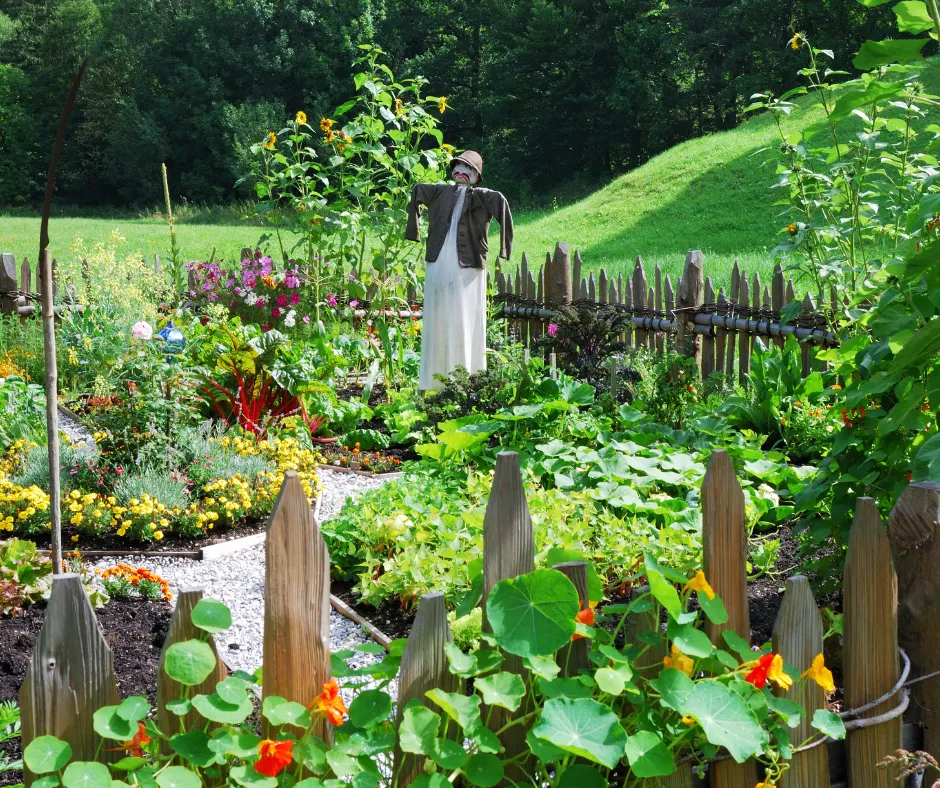Effective Irrigation Strategies For Your Garden
A thriving garden is a result of planning, frequent maintenance, and, importantly, an effective irrigation strategies for your garden regime. Efficient means of watering the garden not only maintain your plants healthy and strong but also play a crucial role in water conservation and establishing a sustainable environment. This tutorial talks about some effective techniques of irrigation that are extremely efficient, benefits they provide, and tricks and tips to plan an ideal garden irrigation system.
Understanding Your Garden's Water Needs
Before implementing any garden irrigation system, it’s crucial to assess your garden’s specific water requirements. Factors such as soil type, plant species, climate, and seasonal variations play significant roles in determining how much and how often you should water your garden. We are going to see the effective irrigation strategies for your garden.
Soil Type and Moisture Retention
Being aware of your soil type is the most important step in choosing the best irrigation method. Soils differ in how well they retain water, and this will influence how often and how much to water.
- Sandy soils drain rapidly and require frequent watering. However, the incorporation of organic matter in the form of compost or mulch can retain water and prevent excess drainage.
- Clay soils hold water longer but are prone to waterlogging, which will suffocate plant roots. To help drainage, incorporating organic amendments such as peat moss or sand can be used to break up compacted clay.
- Loamy soils offer the best balance between drainage and moisture retention and are admirably suited for efficient irrigation.
- Compressed soil will result in excessive water intake improperly, leading to wasteful watering and runoff. Intermittent aeration and cover cropping loosens the ground and provides pathways for water intake.
- Mulching is an excellent technique for reducing evaporation, maintaining soil moisture, and preventing soil crusting.
- Water content in soils can be monitored and overwatering or underwatering prevented by using moisture meters.
Plant Types and Water Needs
Different plant species have different watering requirements, and these need to be considered during planning for an effective irrigation system.
- Native plants and drought-tolerant plants like succulents grow well with low watering. These are suitable for low-water gardening and xeriscaping.
- High-water-demand plants, like vegetables, ferns, and tropical flowers, require consistent moisture. Drip irrigation or soaker hoses are ideal for delivering precise hydration.
- Perennials normally develop deeper root systems, and hence are more resistant to drought than annuals.
- Container plants are drier and need more frequent watering, especially where weather is warmer.
- Grouping plants with similar moisture needs can improve irrigation efficiency, reducing water waste and ensuring optimal hydration.
- During hotter months, water more frequently when the plants are dry, and less frequently when it is colder to prevent excessive watering.
Climate and Seasonal Considerations
Weather plays a vital role in determining how much and how often to water your garden. Changes of seasons enable it to be best irrigated through optimization of water schedule, elimination of wastage, and upholding plant life.
Temperature and Evaporation Rates
- High temperatures accelerate evaporation, meaning plants require more frequent watering during the summer months.
- Cooler weather slows down evaporation, reducing the need for irrigation. Overwatering in colder months can lead to root rot and fungal diseases.
- Using mulch around plants helps retain soil moisture, mitigating excessive water loss due to heat.
Rainfall and Humidity Levels
- In regions with high humidity, plants absorb moisture from the air, reducing the need for frequent watering.
- Areas with low humidity experience faster moisture loss, making drip irrigation or soaker hoses ideal for minimizing evaporation.
- Installing rain sensors in irrigation systems ensures watering is automatically paused during rainy periods to prevent overwatering.
Seasonal Watering Adjustments
- Spring: As temperatures rise, plants begin active growth, requiring a steady increase in water supply.
- Summer: Water early in the morning or late in the evening to prevent moisture loss from midday heat.
- Fall: Gradually reduce watering frequency as temperatures drop and plant growth slows.
- Winter: Many plants enter dormancy and require little to no irrigation, except for evergreen species or plants in dry winter climates.
Wind Exposure and Moisture Loss
- Strong winds can cause rapid soil dehydration, even in cooler seasons.
- Placing windbreaks, fences, or hedges helps shield plants from excessive moisture loss.
- Using deep watering techniques ensures that roots access moisture beyond the topsoil layer, which dries out quickly due to wind exposure.
Types of Irrigation Systems for Optimal Watering
Selecting the appropriate irrigation system is vital for efficient garden watering and water conservation.
Drip Irrigation System for Water Efficiency
Drip irrigation delivers water directly to the plant’s root zone through a network of tubes and emitters, reducing water wastage due to evaporation and runoff.
Benefits:
- Minimizes water waste by up to 50%.
- Decreases weed growth by limiting excess moisture.
- Prevents soil erosion and nutrient leaching.
- Works well in container gardening and raised beds.
Sprinkler Irrigation for Lawn and Garden Coverage
Sprinkler systems simulate natural rainfall by distributing water through overhead pipes or hoses. They are ideal for large garden areas and can be automated for convenience.
Considerations:
- Avoid watering during peak sun hours to reduce evaporation loss.
- Use smart irrigation controllers to optimize watering schedules.
- Ensure proper spacing to avoid dry spots or overwatering certain areas.
Surface Irrigation for Traditional Watering
Surface irrigation involves allowing water to flow over the soil surface. While cost-effective, it can lead to water runoff and uneven distribution.
Best Practices:
- Use in flat terrain to prevent water pooling.
- Combine with mulching techniques to improve moisture retention.
- Install furrows or small trenches to direct water efficiently.
Soaker Hose Irrigation for Slow and Steady Watering
A soaker hose allows water to seep gradually into the soil, providing deep hydration for plant roots.
Advantages:
- Delivers slow and deep watering, ideal for flower beds and vegetable gardens.
- Prevents water runoff and improves absorption efficiency.
- Reduces leaf wetness, lowering the risk of fungal diseases.
Implementing Efficient Irrigation Practices
To maximize the effectiveness of your garden irrigation system, follow these watering strategies:
- Mulching: Retains soil moisture and reduces water evaporation.
- Zoning: Groups plants based on their watering requirements.
- Regular Maintenance: Inspects irrigation systems for leaks and blockages.
- Watering at the Right Time: Early morning or late afternoon watering minimizes evaporation.
- Using Rain Sensors: Prevents unnecessary irrigation during wet conditions.
Avoiding Common Watering Mistakes
Even with an optimized irrigation system, improper watering can lead to plant stress. Avoid these common mistakes:
- Overwatering or underwatering: Monitor soil moisture levels regularly.
- Watering the leaves: Direct water to the root zone to prevent fungal growth.
- Ignoring weather conditions: Adjust watering based on rainfall and humidity levels.
- Inconsistent watering: Stick to a schedule to promote healthy root development.
Integrating Irrigation with Landscape Features
When planning your garden, it is important to note how irrigation systems relate to fencing and other aspects of landscape design.
- Put up fences before putting up irrigation systems to ensure proper alignment.
- Position sprinklers strategically to prevent fence water damage.
- Employ experts to provide smooth fence and irrigation integration.
- Employ irrigation timers to automate watering, schedule it regularly.
Sustainable Irrigation Practices for Water Conservation
Adoption of sustainable irrigation practices saves your garden and facilitates conservation of the environment.
- Rainwater Harvesting: Harveys and accumulates rainwater for watering the environment.
- Greywater Recycling: Recycles household water for irrigation of gardens.
- Smart Irrigation Controllers: Makes use of weather data to program automatic watering.
- Drought-Resistant Landscaping: Sowing less water-dependent vegetation reduces water dependence.
- Permeable Surfaces: Allow rainwater to infiltrate the ground instead of creating runoff.
By using these effective irrigation strategies for your garden, you can have a healthy and green garden and conserve valuable water resources. Regardless of the method you choose, be it drip irrigation and sprinklers or surface irrigation, choosing the best method and using water-saving techniques will render your garden irrigation system sustainable in the long term.
Get Expert Irrigation and Fencing Solutions Today
The carefully designed irrigation system is the only way to take care of your healthy garden as well as conserving water. However, protecting and beautifying your outdoor oasis requires more; selecting the correct fence contractors Chicago is equally indispensable. Good fences not only protect your property but also enhance your lawn, averting any water damage or soil erosion problems.
We provide personalized fencing services to fit your specific needs, from durable materials to expert installation to irrigation system connection, we can help. Since we are a highly rated fencing company in Chicago, we provide several weather-resistant high-quality fencing solutions that enhance the value and security of your business or home.
Do not settle on anything less than property security. Make an appointment today and let us design the perfect combination of style, security, and functionality. A proper approach to fencing and irrigation will not only create an outstanding look for your outdoor setting but a lasting one.

fence company chicago, fence installation Schaumburg IL, fence company Franklin Park, fence installation Addison, fence company Elgin IL, fence installation Evanston IL, fence company Melrose Park, fence installation Bensenville IL, fence company Oak Park, fence installation Skokie, fence company Broadview IL, fence installation Schiller Park.







